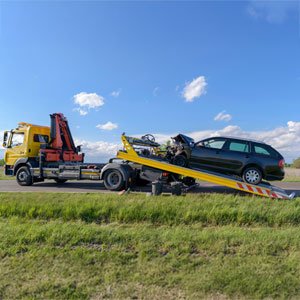Hit and Run Accident Issues of Negligence vs. Intentional Conduct In Lakeland Accident
Car AccidentsTrinity Hamilton, 11 years old, was struck by a pickup truck driven by William Ray Hull on Idlewild Street on September 1, 2017. Hull’s pickup truck was white with a black stripe down the middle and struck Hamilton from behind after she had gotten off of the school bus. A witness reported in The Ledger said that she saw Hull swerve off the road and hit Trinity. Thereafter, the truck swerved back onto the road and took off.
Hamilton sustained a fractured jaw and a dislocated pelvis. Hull has been charged with leaving the scene of a crash involving serious bodily injury, a felony.
Intentional Versus Negligent Conduct
After reading the story in the news about Hull “swerving” off the road and then back on is that this might be intentional conduct as opposed to negligence. While it is entirely possible that the driver of a motor vehicle can “negligently” go off onto the shoulder (for instance, when playing with a phone or other device in the car) and then swerve back on, it has to be considered whether Mr. Hull did this on purpose. If he did, then he should be charged with a more severe crime.
However, the distinction of whether conduct is intentional versus negligent makes a difference when making an injury claim in Florida. Much like an act of terror is excluded from virtually all insurance policies, intentional conduct (when the defendant strikes a pedestrian on purpose) is excluded from virtually all liability insurance policies in Florida. Therefore, while Hull is legally responsible regardless of distinction, a collectible liability insurance claim almost always requires negligent conduct as intentional torts are typically excluded from coverage.
One of the reasons this is true is because insurance companies are not required to provide coverage for “moral hazard.” In other words, having insurance is not supposed to make people more reckless in their interactions with others. Instead, insurance is intended to provide coverage when there is an “accident.”
Another issue with intentional torts is with the application of Florida’s “dangerous instrumentality” doctrine for vicarious liabilty. The dangerous instrumentality doctrine places the owner (or co-owner) of an automobile on the hook for negligence. However, if the motor vehicle is used intentionally, then there is no legal responsibility of the owner unless the injured claimant can prove that it was foolish for the owner to let the driver borrow the vehicle in the first place. This is often called a claim for “negligent entrustment” in Florida.
Applicability Of Uninsured Motorist’s Coverage
On the other hand, if Trinity’s parents have UM coverage on their auto policy, then regardless of whether this accident was intentional or not, there is coverage for this accident. In Florida, UM coverage applies regardless of whether the accident was caused by negligence or was intentional.
Several years ago, I had a case involving a road rage incident where it was pretty clear that one driver struck the other on purpose. In that case, the offending driver did not have liability coverage (if he had, then this claim would have been excluded) but my client had substantial UM coverage on his own automobile policy. Without having UM coverage on his own automobile policy, this client would have been out of luck except for no-fault coverage.
This is why having UM coverage on your policy is a must have in Florida. Florida is one of only two states that does not require bodily injury (in addition to New Hampshire). Not requiring all drivers to have bodily injury is very bad policy for the public, however, it is an issue that receives relatively little political attention. Florida should make having bodily injury mandatory on every driver’s insurance policy. Many increases in premium due to “risk” should be offset by a reduction in the cost of UM coverage (because everyone is supposed to have insurance), however, insurance companies are all about profit rather than providing a service to the public.
Suing For Negligent Conduct Only
While personal injury lawyers get a bad rap for chasing ambulances with a ton of advertising, hiring a personal injury attorney on a claim such as this one can make a difference. There may not be UM coverage and the parents of this injured child may have no choice but to sue Mr. Hull for negligently causing this accident regardless of what the truth may actually be (only Hull knows the real truth anyway). If you sue for negligence, there is a possibility that Mr. Hull admits the allegation that he was negligent in causing the accident. Doing so would cause Mr. Hull’s insurance company to cover him for this accident and would result in a payout to the child.
Help For The Injured
It is often necessary for an injured person to file a lawsuit because the insurance company won’t settle. This is often a big decision for an injured person because most injured people would rather settle if they can. This is where getting the right attorney to help you is important.
If you need help with your car accident case, you should contact us for a free consultation. Discussing your case with a personal injury attorney is free and without obligation. Call today to schedule your free case review.
Sheriff’s Office finds suspected driver in hit-and-run that injured an 11-year-old girl Read more: … https://t.co/n2iUHIuYOn
— The Ledger (@theledger) September 2, 2017


